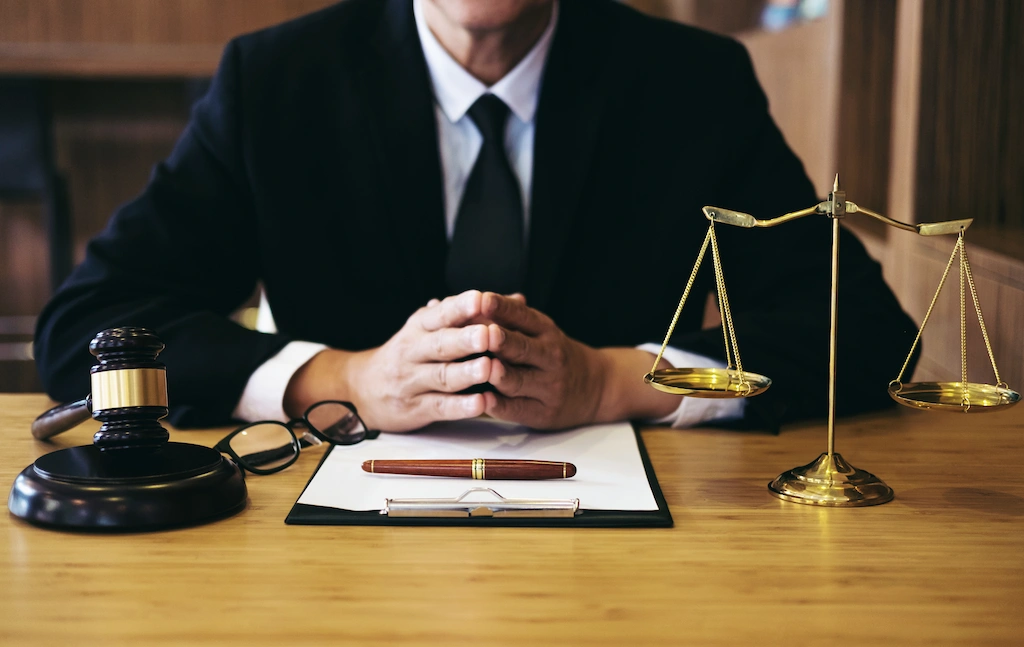Physical Address
304 North Cardinal St.
Dorchester Center, MA 02124
Physical Address
304 North Cardinal St.
Dorchester Center, MA 02124

The American criminal justice system is predicated on the principle of being innocent until proven guilty.
This lies at the heart of every criminal trial, and the burden of proof lies with the prosecution to establish the guilt of the accused beyond a reasonable doubt.
It is a critical legal standard and exists to prevent wrongful convictions, and is a vital component for any defense lawyer to adequately represent their clients.
If you have recently been accused of committing a drug-related offense, below are eight things your defense lawyer needs you to know:
Drug crimes are serious criminal offenses in Alabama and, depending on the charge, can be filed as felonies or misdemeanors.
Prosecutors typically try get the worst possible sentence if convicted, and your best chance is to fight any charges. Occasionally, depending on the circumstances, a plea deal may be in your best interest, but your defense lawyer will advise accordingly.
Drug crimes in this state refer to a broad spectrum of acts involving illegal drugs.
When sentencing drug offenders, the court has a range of penalties available, including fines, probation, community service, and incarceration, including life sentences.
If you are facing drug possession issues in Alabama, you must know how the state classifies controlled substances.
There are five schedules, each one indicating the drug’s medical use and potential for abuse. For example, Schedule I drugs like heroin and phenomorphan are considered extremely dangerous, with no current acceptable medical use.
Conversely, Schedule IV drugs, such as certain sleeping pills like Brozam, are seen as less of a risk of having medical applications.
Higher scheduled drugs typically mean stricter penalties and heavily influence the severity of the charges, from fines to jail time.
If you have been arrested on distribution and drug trafficking charges, you need a strong defense as soon as possible.
Drug trafficking is a serious charge in Alabama, and it carries harsh penalties for a conviction.
The state of Alabama defines drug trafficking and distribution as the sale, distribution, or transport of illegal drugs, such as heroin, methamphetamine, prescription drugs, and cocaine, in quantities that exceed a specified threshold.
The penalties depend entirely on the quantity and type of drugs involved.
A person charged in Alabama and accused of drug paraphernalia possession is prosecuted as any other charge.
They are presumed innocent, and they have a right to demand that the state prove what the substance used was beyond a reasonable doubt. They also have a right to a trial and to cross-examine witnesses.
The specific type of paraphernalia and the substances associated with it often impact the charge moving forward, as does having previous drug paraphernalia convictions.
A person facing this charge has the right to demand the nature of the accusation in a verified criminal complaint and the right to a trial in front of a judge or jury.
If you are facing these charges in Alabama, you should consult a professional, such as a drug paraphernalia lawyer in Birmingham, to help you navigate the process.
Prioritize finding an experienced lawyer who is skilled in defending this specific charge.
With the help of a lawyer experienced in defending these charges, you can minimize the potential effects of a conviction or even avoid a conviction altogether.
An illegal search and seizure in Alabama violates an individual’s constitutional right to privacy.
The Fourth Amendment of the United States Constitution clearly states: The right of the people to be secure in their persons, houses, papers, and effects, against unreasonable searches and seizures, shall not be violated, and no Warrants shall issue, but upon probable cause, supported by Oath or affirmation, and particularly describing the place to be searched and the persons or things to be seized.
While indeed a mouthful, this unequivocally prohibits any unreasonable searches and seizures by law enforcement in places where someone has a reasonable expectation of privacy.
That includes locked trunks, property, body searches, and certain public places.
In the legal world, insufficient evidence is a major player in rendering a verdict of “not guilty”.
If the prosecution doesn’t have enough evidence, they cannot establish the certainty of a crime having been committed. That is where reasonable doubt comes in.
In legal terms, reasonable doubt is defined as a standard that falls short of absolute certainty but presents evidence that leaves no reasonable alternative conclusion other than guilt.
Defense lawyers have a responsibility to highlight and exploit insufficient evidence to ensure reasonable doubt is present.
If law enforcement coerced you into committing a crime you would never have ordinarily committed, your attorney can argue entrapment.
Entrapment can be a successful defense strategy. This is considered to be an affirmative defense and requires you to allege that an agent of the state acquired the necessary evidence via persuasion, harassment, fraud, or threats.
If there are any issues with the documentation or handling of drugs, paraphernalia, or other evidence, your lawyer can challenge the prosecution.
Discrediting the chain of custody can help to cast doubt on the reliability of the evidence and testimony against you.
This includes witness statements.
For example, if your lawyer can prove beyond a reasonable doubt that a witness was under the influence of alcohol when they allegedly saw what they saw, that could be discredited in court.
In Conclusion
Even minor drug offenses can attract severe penalties and negatively impact your future.
The law around drug offenses is complex and can be difficult to understand. It often involves both state and federal authorities, so finding an experienced defense lawyer who knows their way around these offenses and charges is essential for anyone facing charges of this nature.
They will explain the process, the defences available to you, and your rights. They will also advocate on your behalf when negotiating with the prosecution.